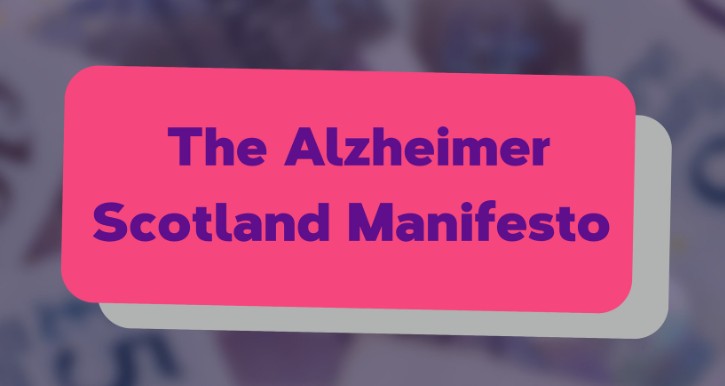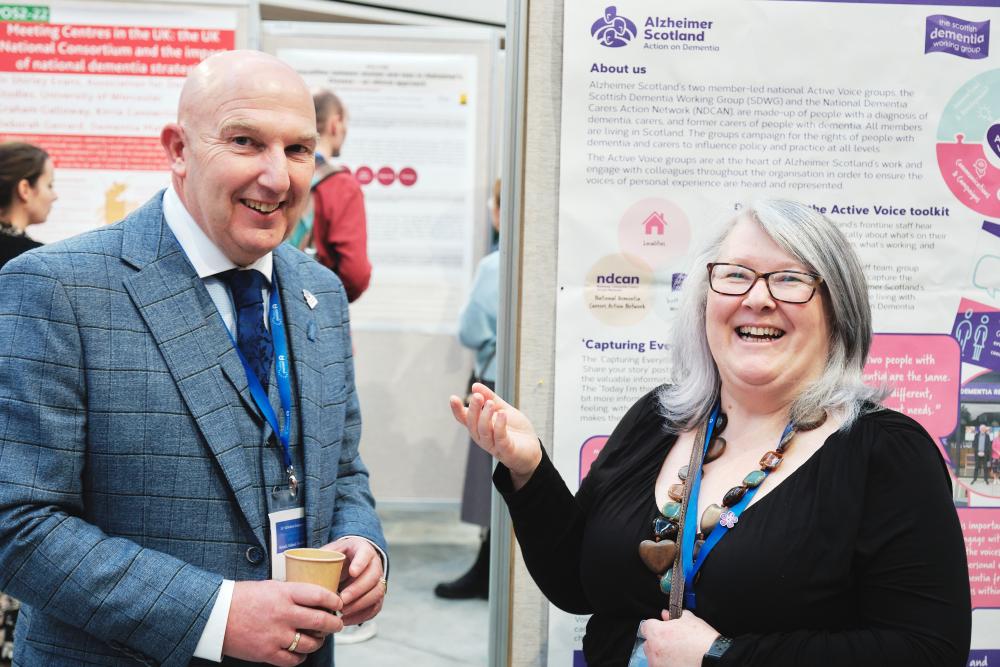Campaign for change
Alzheimer Scotland works nationally and locally to make sure that nobody faces dementia alone.
How Alzheimer Scotland is campaigning for change
Everyone affected by dementia deserves to have their voice heard. That’s why we campaign hard for better services, fairer policies and greater awareness across Scotland.
We make sure that people who make decisions about policy, strategy, services, support and legislation see dementia as a priority and listen to people with personal experience when making the decisions which will impact them.
What are we campaigning for?
► A clear national pathway of care for dementia
► Access to new drugs
How you can get involved

Download our manifesto
This manifesto is a call for change. It sets out a bold and practical vision for a Scotland where the dementia experience is clear, consistent, and compassionate – not fragmented and uncertain.

Have your say
Scotland, we want to hear your experiences of dementia care. Dementia care in Scotland must be fair and consistent. Your views will help shape our campaigning ahead of the upcoming Scottish elections. Our survey takes just 5 minutes and can even be anonymous.

Active voice
Our Active Voice groups, the Scottish Dementia Working Group (SDWG) and National Dementia Carers Action Network (NDCAN), use their lived experience to help shape policy and practice along with upholding rights and driving change.

Share your story
Your story can help us drive change. By sharing your experiences, you can raise awareness, inspire support, and show others that they’re not facing dementia alone.